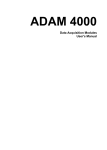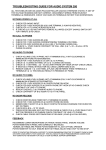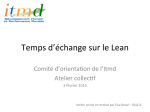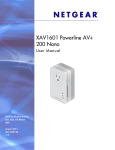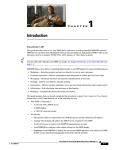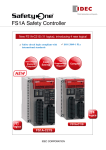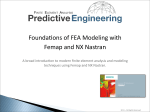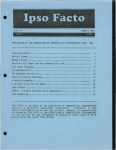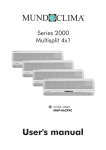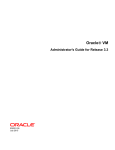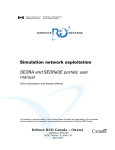Download Exam Study Guide
Transcript
Oracle VDI Exam Study Guide Table of Contents Symbols, Acronyms & Initialisms .................................................................................................................................3 Study Guide Overview ......................................................................................................................................................4 Introduction to the Oracle Virtual Desktop Infrastructure .................................................................................5 Protocols and Devices ......................................................................................................................................................6 Installing the VDI core ......................................................................................................................................................7 The VDI Center ....................................................................................................................................................................8 Storage & Database .........................................................................................................................................................10 Pools, Desktops and Cloning ........................................................................................................................................11 Oracle VDI Advanced Topics ........................................................................................................................................14 Additional Study Resources .........................................................................................................................................17 Authors: John Pither & Michael Medefesser 10/29/12 Symbols, Acronyms & Ini7alisms Common abbreviations used throughout the study guide Appliance Link Protocol ALP Command Line Interface CLI Microsoft MS Oracle Partner Network OPN Oracle Virtual Desktop Client OVDC Oracle Virtual Desktop Infrastructure Oracle VDI Remote Desktop Connection RDC Remote Desktop Protocol RDP Virtual Machine VM VirtualBox Remote Desktop Protocol VRDP Authors: John Pither & Michael Medefesser 10/29/12 Study Guide Overview The purpose of this guide is to help you prepare for the Oracle Partner Network exam for Oracle Virtual Desktop Infrastructure specialization. The guide is broken into topics that are covered by the exam. Each topic will contain a summary of the important parts of the topic, along with sample questions that demonstrate the level of question that will be asked on the exam. At the end of the guide is a section that highlights links to additional study resources that we recommend you review prior to taking the exam. Topics • • • • • • • • • • Introduction to the Oracle Virtual Desktop Infrastructure Protocols and Devices Installing the VDI Core The VDI Center Desktop Providers Database & Storage Pools, Desktops and Cloning Client Access Oracle VDI Advance Topics Backup and Restore Authors: John Pither & Michael Medefesser 10/29/12 Introduc7on to the Oracle Virtual Desktop Infrastructure Oracle Virtual Desktop Infrastructure (VDI) provides access to virtualized desktops hosted in a data center. Oracle VDI can provide a complete desktop provisioning and delivery service by: • Creating, running, managing, and storing virtual machines. • Authenticating users, and connecting them to their virtualized desktops. • Enabling client devices to display virtualized desktops. Figure 1 shows how Oracle VDI is able to provide a complete end-‐to-‐end solution, from the client to the storage. Figure 1 Exam Prepara7on This topic will pose questions that: • Ask about the architecture and beneTits of the Oracle VDI solution, • cover the deployment of desktops with Oracle VDI Sample Ques7on Content 1. Due to the way the Oracle VDI architecture was designed, it allows for the hardware and software interoperability with other solutions. Each layer uses a different technology to complete the OVDI solution. Because this is data center technology, how could it help solve some traditional desktop challenges? 2. The Oracle VDI architecture has multiple deployment use cases, spanning multiple guest VM operating systems. What guest operating systems are supported? Authors: John Pither & Michael Medefesser 10/29/12 Useful links Introduction to Oracle VDI Desktop to Datacenter white paper Protocols and Devices With Oracle VDI, desktop sessions always run on the virtualization host and never on the client devices. Users can access their desktops using any of the following clients: Oracle Sun Ray Clients, including Oracle Virtual Desktop Clients Remote Desktop Protocol (RDP) clients, including secure web access using Oracle Secure Global Desktop Web services clients, typically web applications The VDI Service handles all requests for access to a desktop. Once a user has a desktop, the RDP protocol is used to connect to, and display, the desktop session. Exam Prepara7on This topic will pose questions that: • Ask about the challenges of remote display and networks • Query the capabilities of ALP, VRDP, and the Sun Ray enhancements to the Remote Desktop Protocol (RDP) Sample Ques7on Content 1. You will Tind many challenges when trying to remote display a desktop environment. Everything from the protocol to the network can change how the users perceives their desktop environment. How does the ALP protocol address these challenges? 2. The Sun Ray Software and Oracle VirtualBox use high performing protocols, which give it many advantages when architecting a desktop solution. What are the protocols used, and how can they be leveraged? Useful Links Desktop Access -‐ General Desktop Access -‐ Detail Authors: John Pither & Michael Medefesser 10/29/12 Installing the VDI core On Oracle Linux hosts, the installation script checks whether the required packages for Oracle VDI are installed. If any required packages are missing and yum is conTigured correctly, the installation script prompts you to continue and installs the missing packages. If the required packages are not installed, the installation fails. At the end of the installation, you are prompted to conTigure Oracle VDI. You can conTigure Oracle VDI on a host in the following circumstances: • As part of the software installation, immediately after installing or updating the Oracle VDI software on a host. • As a separate step, after installing or updating the Oracle VDI software on a host. • As a separate step, after un-‐conTiguring Oracle VDI on a host. Exam Prepara7on This topic will pose questions that: • Cover system requirements • Ask about Oracle VD high availability technologies • Cover the installation and conTiguration of the VDI core Sample Ques7on Content 1. System requirements play a major role in how successful the deployment will be. What are the system requirements for...? 2. Learning to install and conTigure the Oracle VDI core installation will be Tirst step of the deployment. What are the different options available when installing the core? Useful Links Installing Oracle VDI Oracle VDI 3.4 Getting Started Guide Authors: John Pither & Michael Medefesser 10/29/12 The VDI Center Typically user information is already stored in an Active Directory or LDAP server. Before you can create pools and assign users to desktops, you must conTigure the desired Active Directory/LDAP server and the Oracle VDI. The following information describes the user directory types supported by Oracle VDI. Active Directory integration is the recommended choice for production platforms integrating with Microsoft Active Directory. Active Directory integration requires additional conTiguration (Kerberos conTiguration and time synchronization) on the Oracle VDI hosts. LDAP integration is the recommended choice for integrating with other types of LDAP directories or to set up Active Directory integration quickly. The setup is straight-‐forward, without the need for extra conTiguration. Exam Prepara7on This topic will cover questions that: • Describes the user directory integration • Ask about conTiguring the user directory • Refer to conTiguring Kerberos for MS Active Directory Sample Ques7on Content 1. User Integration is an important part of the Oracle VDI solution. What are the different directory services used by Oracle VDI? 2. ConTiguring the User Directory integration in Oracle VDI is not complicated, but it’s important to get all the preliminary steps done Tirst before you start. Why is this? Useful Links Companies and User Directories Authors: John Pither & Michael Medefesser 10/29/12 Desktop Providers Oracle VDI does not restrict you to a single virtualization platform. You can use a mixture of desktop provider types and create as many desktop providers as you need. How Oracle VDI interacts with a desktop provider depends on the provider type. Hypervisor-‐Based Desktop Providers The following are the available hypervisor-‐based desktop providers: • Oracle VM VirtualBox • Microsoft Hyper-‐V • VMware vCenter Session-‐Based Desktop Providers The following are the available session-‐based desktop providers: • Microsoft Remote Desktop • Sun Ray Kiosk • Generic Exam Prepara7on This topic will cover questions that: • Generally refer to the different Desktop providers, their roles and characteristics • Ask about installation and conTiguration of the Oracle VM VirtualBox Desktop Provider • Refer to the creation of VirtualBox VM templates Sample Ques7on Content 1. The Desktop Provider role is unique to Oracle VDI. The broker was designed to support different hypervisors as well storage and networking. What are the supported hypervisors? 2. Desktop Providers, like the primary hosts, need to be conTigured and sized correctly. Why is this? 3. Oracle VirtualBox is the default hypervisor that comes bundled with Oracle VDI. How is it installed? Useful Links Desktop Providers Authors: John Pither & Michael Medefesser 10/29/12 Storage & Database Storage Storage is closely related to virtualization because usually a desktop provider requires somewhere to create and store the virtual disks used for desktops. The storage requirements depend on the desktop provider type. The Oracle VM VirtualBox and Microsoft Hyper-‐V desktop providers require storage. Oracle VDI supports local disks, network Tile system shares, iSCSI storage devices, and Zettabyte File System (ZFS) storage pools. The storage that can be used depends on the desktop provider type and operating system of the virtualization hosts. VMware vCenter desktop providers also require storage but the storage is managed by the VMware infrastructure. However, Oracle VDI is able to query vCenter for the available storage, and can select the data store to use when creating virtual disks. For all other desktop providers, storage is managed independently of Oracle VDI.For the desktop providers that require storage, Oracle VDI is able to monitor the available free space and current workload. If multiple storage servers are conTigured, Oracle VDI uses this information to balance the load. MySQL Database Oracle VDI requires a MySQL database to store conTiguration and run-‐time information. When you conTigure an Oracle VDI Center, you can choose to use the embedded MySQL Server database that is included with the Oracle VDI software, or you can use your own MySQL database. If you use the embedded MySQL Server database, the primary host in the Oracle VDI Center runs the Oracle VDI master database. To provide for high availability, a secondary host in the Oracle VDI Center runs a slave database that receives replication updates from the primary host. If the primary host becomes unavailable, the Oracle VDI Center Agent automatically promotes the secondary host to become the primary host, and its database becomes the master database. If you use your own MySQL database, you must make your own provision for high availability. The conTiguration data stored in the database includes the information about user directories and tokens, desktop information such as desktop providers, pools, templates, and storage. The run-‐ time information includes information about the users that are logged in, the desktops they are using, the state of the desktops, and details of cloning jobs that are running. Authors: John Pither & Michael Medefesser 10/29/12 Exam Prepara7on This topic will cover questions that: • Ask about the default database conTiguration • Refer to conTiguring VDI to use uniTied storage Sample Ques7on Content 1. Oracle VDI uses an embedded MySQL server for its’ database. Is it important to know how to set this up when building a VDI Center? 2. Oracle VDI supports a number of different storage providers and protocols. What are the supported protocols? Useful Links Storage Database Pools, Desktops and Cloning Oracle VDI organizes desktops in pools. A pool is a collection (or container) of desktops. Typically you will create different pools for different types of users. For example, the engineering team in your company might have different desktop requirements than the marketing department. For Oracle VM VirtualBox and Microsoft Hyper-‐V desktop providers, the following pool types are available: • Dynamic pools are Tilled with cloned Tlexible desktops. If you choose the Dynamic Pool type, the desktops in the pool will be temporarily assigned to users. They will be recycled each time the user logs out. This pool type is considered dynamic because the user-‐desktop assignments are often changing. • Growing pools are Tilled with cloned personal desktops. If you choose the Growing Pool type, the desktops in the pool will be permanently assigned to users. Users can log in and out without losing their desktop settings. The desktops are not recycled. • Manual pools are initially empty. They are Tilled manually by importing personal desktops. The Manual Pool type should be used if cloned desktop assignment is not an option. The desktop states are used to accomplish the following: • Implement the desktop lifecycle. • Synchronize Oracle VDI hosts and virtualization platform. • Serve as a tool for monitoring and analyzing the system state. Authors: John Pither & Michael Medefesser 10/29/12 The following Tigure depicts a simpliTied version of the lifecycle of a Tlexibly assigned desktop. Lifecycle of a Flexible Assigned Desktop Figure 2 Possible desktop states are: • • • • • Available Idle Used Reserved Unresponsive Exam Prepara7on This topic will cover questions that: • Ask about Oracle VDI pool types and their role • Refer to desktop life-‐cycles and desktop states • Ask about the pool creation and population process Authors: John Pither & Michael Medefesser 10/29/12 Sample Ques7on Content 1. To make it more manageable for administration purposes, Oracle VDI organizes desktops in what is called pools. What are the available pool types? 2. The concept of creating virtual desktops deals with a desktop lifecycle and state. What is a desktop state? 3. After the core OVDI infrastructure has been created, one of biggest tasks that the administrator will need to perform is provisioning desktops. How do you import a desktop into the Oracle VDI software? 4. The use of templates makes it easier to perform and control administrative tasks. What constitutes a “master” in templates? Useful Links Desktop Pools Desktop States Cloning Desktops Client Access Users can access their virtual desktops from two types of clients, Sun Ray Clients and Remote Desktop Protocol (RDP) clients. Sun Ray Clients, whether traditional hardware clients or Oracle Virtual Desktop Clients, connect to Sun Ray Software over the Oracle Appliance Link Protocol (ALP). Under Oracle VDI, Sun Ray Software runs on the Oracle VDI host and includes the Oracle VDI kiosk session and the Sun Ray Windows connector. The kiosk session connects Sun Ray users to Oracle VDI, and the Sun Ray Windows connector completes the connection to the virtual desktops. The RDP protocol was developed by Microsoft as a way to establish secure connections between servers and remote clients. Oracle VDI includes a built-‐in RDP broker that enables RDP clients to access virtual desktops. These RDP clients include the Oracle Secure Global Desktop RDP client and Microsoft Remote Desktop Connection (RDC). Networking The following is a list of the types of network trafTic created by Oracle VDI. The list is ordered by bandwidth requirements, with highest bandwidth requirement listed Tirst: • iSCSI trafTic between VirtualBox and Microsoft Hyper-‐V virtualization hosts and storage hosts • RDP trafTic between Oracle VDI hosts and virtualization hosts • ALP trafTic between Sun Ray Clients and Oracle VDI hosts • RDP trafTic between the RDP clients and Oracle VDI hosts or virtualization hosts • Database replication trafTic between the master and slave database hosts in an Oracle VDI Center, or between the primary Oracle VDI host and the external database, if an external database is used Authors: John Pither & Michael Medefesser 10/29/12 SSH and HTTPS trafTic between Oracle VDI hosts and storage hosts, or between Oracle VDI hosts and virtualization hosts Exam Prepara7on This topic covers questions that: • Refer to how users access their desktops • Ask about network basics and best practices • Refer to the different Sun Ray clients, including the OVDC client • Ask about the role played by the Sun Ray Server software in Oracle VDI Sample Ques7on Content 1. Oracle VDI presents an almost agnostic approach to the users desktop client. What are the different Oracle Sun Ray clients that can be used to connect to Oracle VDI? 2. Oracle Sun Ray Server software is a embedded component of the Oracle VDI. What role does the Oracle Sun Ray Server Software provide? Useful Links Desktop Access Networking Oracle VDI Advanced Topics Maintenance Mode On occasion, you might need to off-‐line a conTigured host or storage, including maintenance, upgrades, and decommissioning. The Maintenance Mode feature allows virtual machines to be cleared from a currently used host or storage and moved to a different host or storage so that normal operations may continue while the initial host or storage is unavailable. This process is also considered a "cold" migration because running virtual machines will be suspended to allow the maintenance process to proceed. Maintenance mode is available for Oracle VM VirtualBox and Microsoft Hyper-‐V desktop providers only. Storage Maintenance Oracle VDI provides a mechanism to put one or more storage servers in maintenance mode. Maintenance mode implies that the storage server is disabled and all running desktops are either shutdown or suspended. At this point, maintenance can take place on the storage server (reboot or upgrade). No data is moved or deleted from the speciTied storage server (including desktop hard disk data), but the associated OCFS2 Tile systems (iSCSI or Sun ZFS storage types) are un-‐ mounted from the virtualization hosts. When the storage server is re-‐enabled, the OCFS2 Tile systems are remounted on the virtualization hosts, and any desktops suspended as a result of entering maintenance mode are resumed. Authors: John Pither & Michael Medefesser 10/29/12 Multiple Monitor Capability Sun Ray Software enables the display of a single Sun Ray session across multiple monitors or of multiple Sun Ray sessions on separate monitors. Oracle VDI extends this capability to the display of virtual Windows XP or Windows 7 desktops. Multiple Desktop Selection The Desktop Selector enables the user to select and connect to multiple desktops, provided that user has a Sun Ray Client with two monitors and has been assigned two or more virtual desktops. Assign Tokens to Users In a Sun Ray environment, users may take advantage of smart cards (tokens) to initiate a session on a Sun Ray Client. With Oracle VDI, you can assign a token to a user. It is also possible to assign desktops directly to speciTic tokens. Once tokens have been created, they can be assigned to pools and desktops. Pool Sun Ray RDP Settings The Sun Ray Windows connector supports a wide range of options for conTiguring RDP connections to users' desktops. Oracle VDI enables you to conTigure a subset of these options for a pool. Exam Prepara7on This topic covers questions that: • Refer to the maintenance and monitoring of the hypervisor and storage hosts • Ask about conTiguring multi-‐head and multi-‐monitor features • Ask about tokens and how they’re assigned to users • Refer to the Oracle VDI CLI • Ask about the Sun Ray RDP Settings in the Pools Tab. Sample Ques7on Content 1. The advanced topics cover the deeper administration aspects of Oracle VDI. How would you go about setting the Desktop Provider hosts and storage in maintenance mode? 2. What is the difference between multi-‐monitor and multi-‐head features? Useful Links Maintenance Mode Multi-‐monitor feature Assigning tokens Sun Ray RDP Settings Authors: John Pither & Michael Medefesser 10/29/12 Backup and Restore Backing Up and Restoring the Oracle VDI Database As with all user-‐level data, it is important to back up the Oracle VDI database periodically. This is also a crucial step if you plan to reinstall an Oracle VDI host. Here is a list of important notes when backing up and restoring the Oracle VDI database. • For multi-‐host setups, the backup and restore process should only be done on one host. It does not need to be done on every host. • You can perform the backup and restore tasks on different hosts as long as the archived backup is accessible. • The backup job stops all other Oracle VDI jobs. Jobs are automatically started again after the backup Tinishes. • The restore job stops the entire Oracle VDI system, but active sessions will continue to run. When a restore job Tinishes, you must restart the Oracle VDI system (through the Common Agent Container (cacao) on all hosts. Exam Prepara7on This topic covers questions that: • Ask how to backup the VDI database • Refer to exporting templates and personal hard disks • Query how to use the maintenance mode feature for the VirtualBox host and storage components Sample Ques7on Content 1. Oracle VDI has a command that allows you to backup the VDI Database. What is the backup command? 2. How do you restore a Oracle VDI database? Useful Links Backing Up Oracle VDI Database Authors: John Pither & Michael Medefesser 10/29/12 Addi7onal Study Resources Oracle Desktop Infrastructure Administrator’s Guide Oracle Desktop Infrastructure Getting Started Guide Sun Ray Software Administration Guide Oracle VM VirtualBox User Manual Oracle Virtual Desktop Infrastructure Main Page Authors: John Pither & Michael Medefesser 10/29/12


















